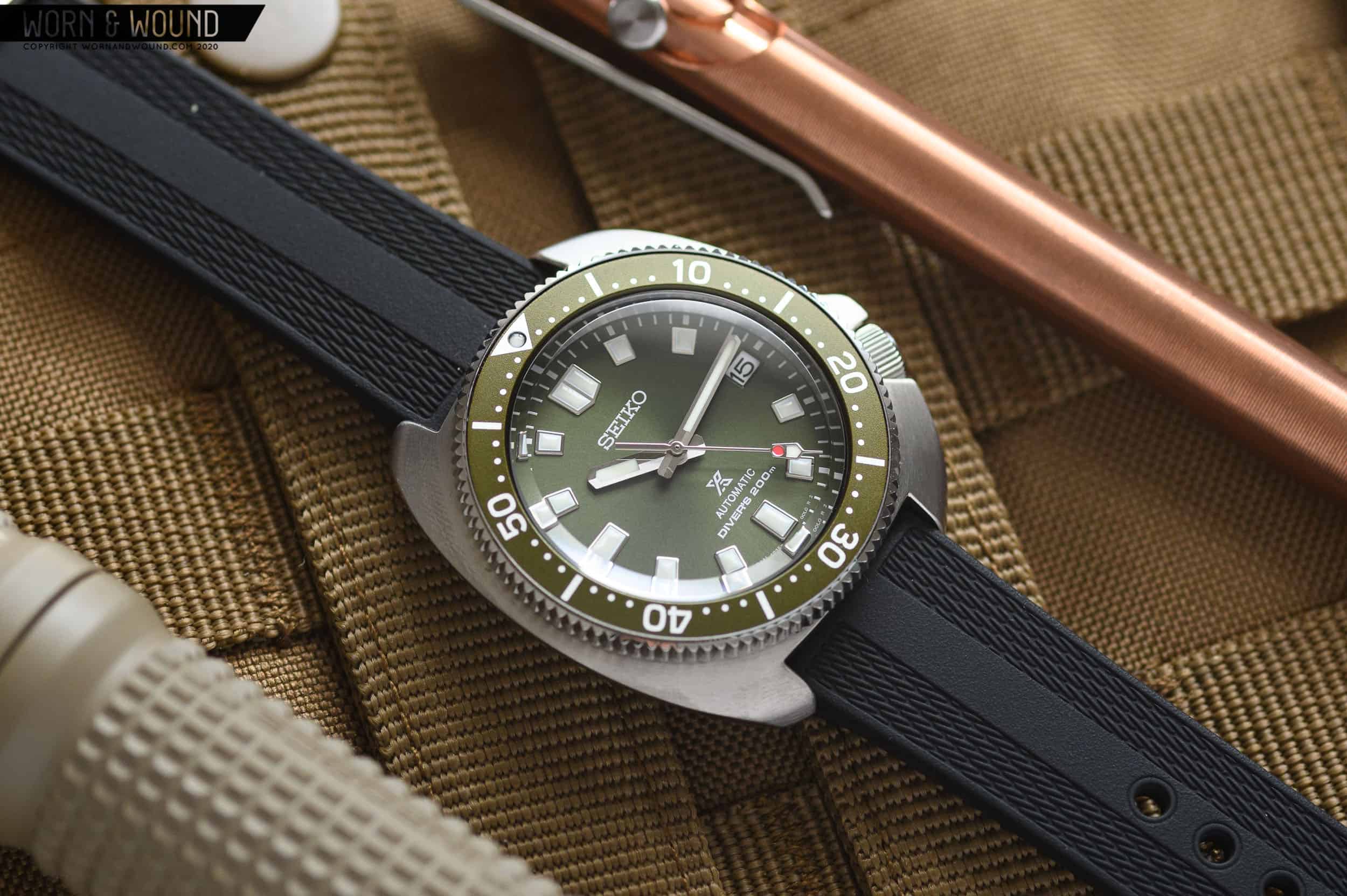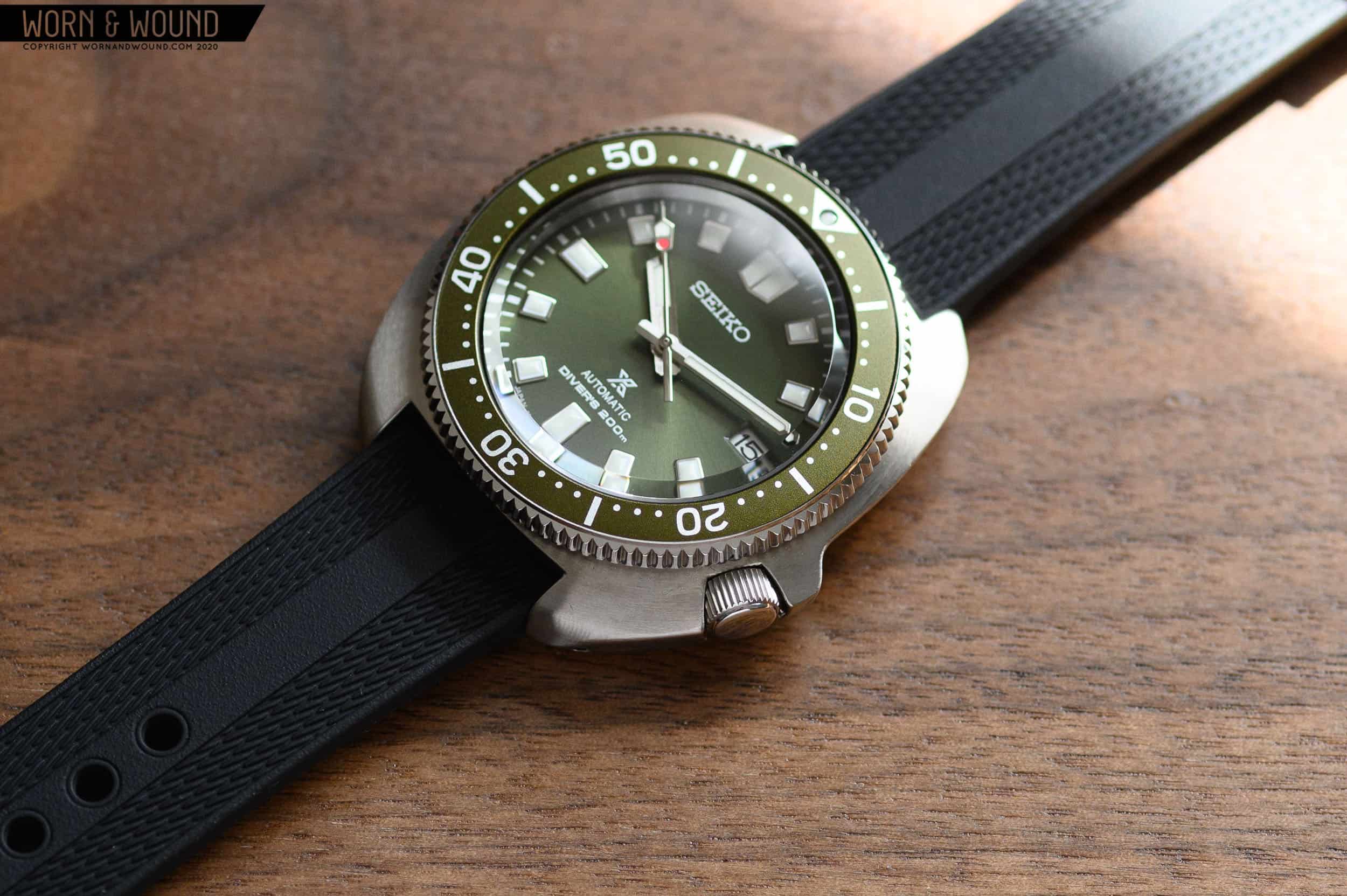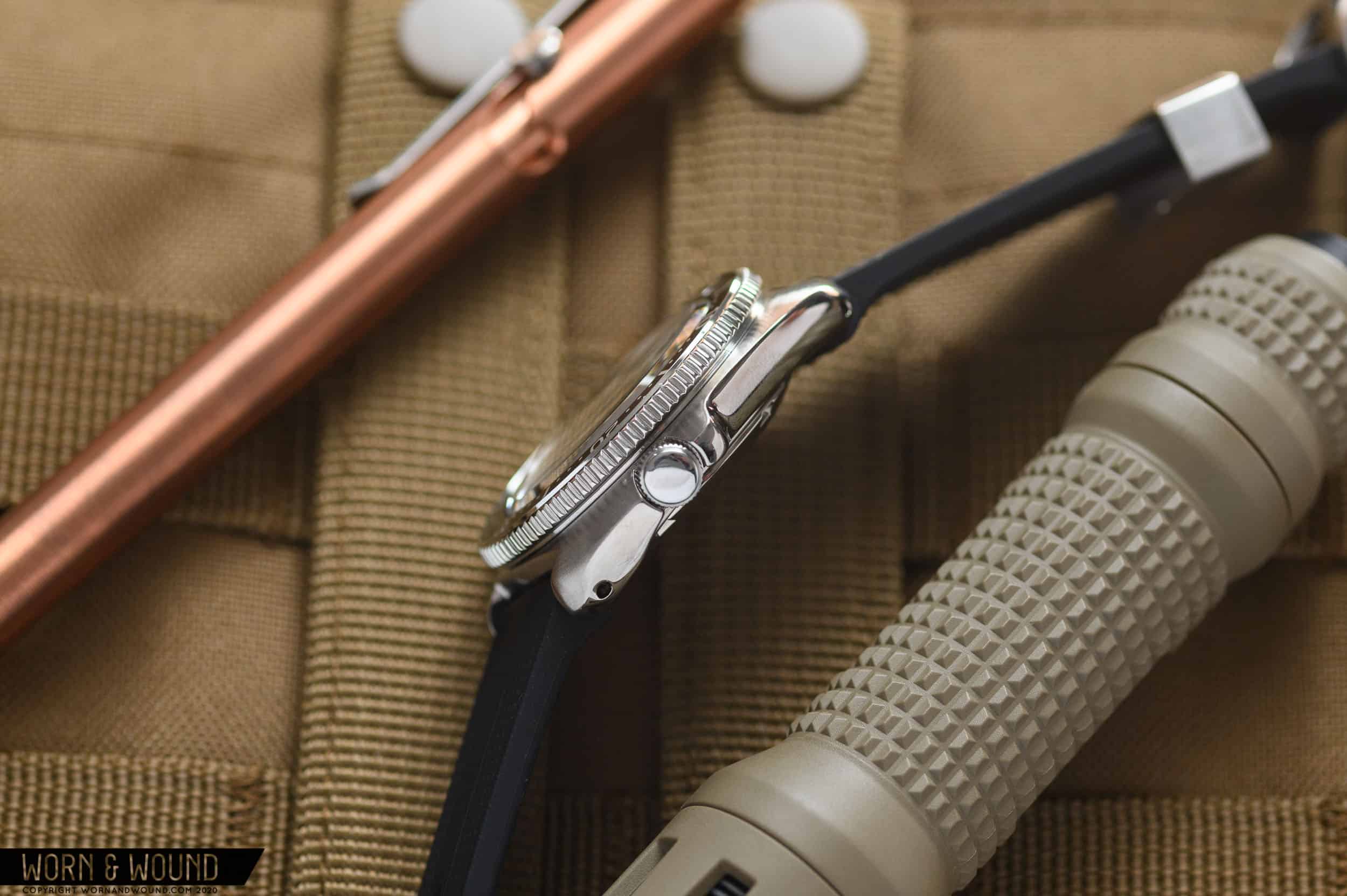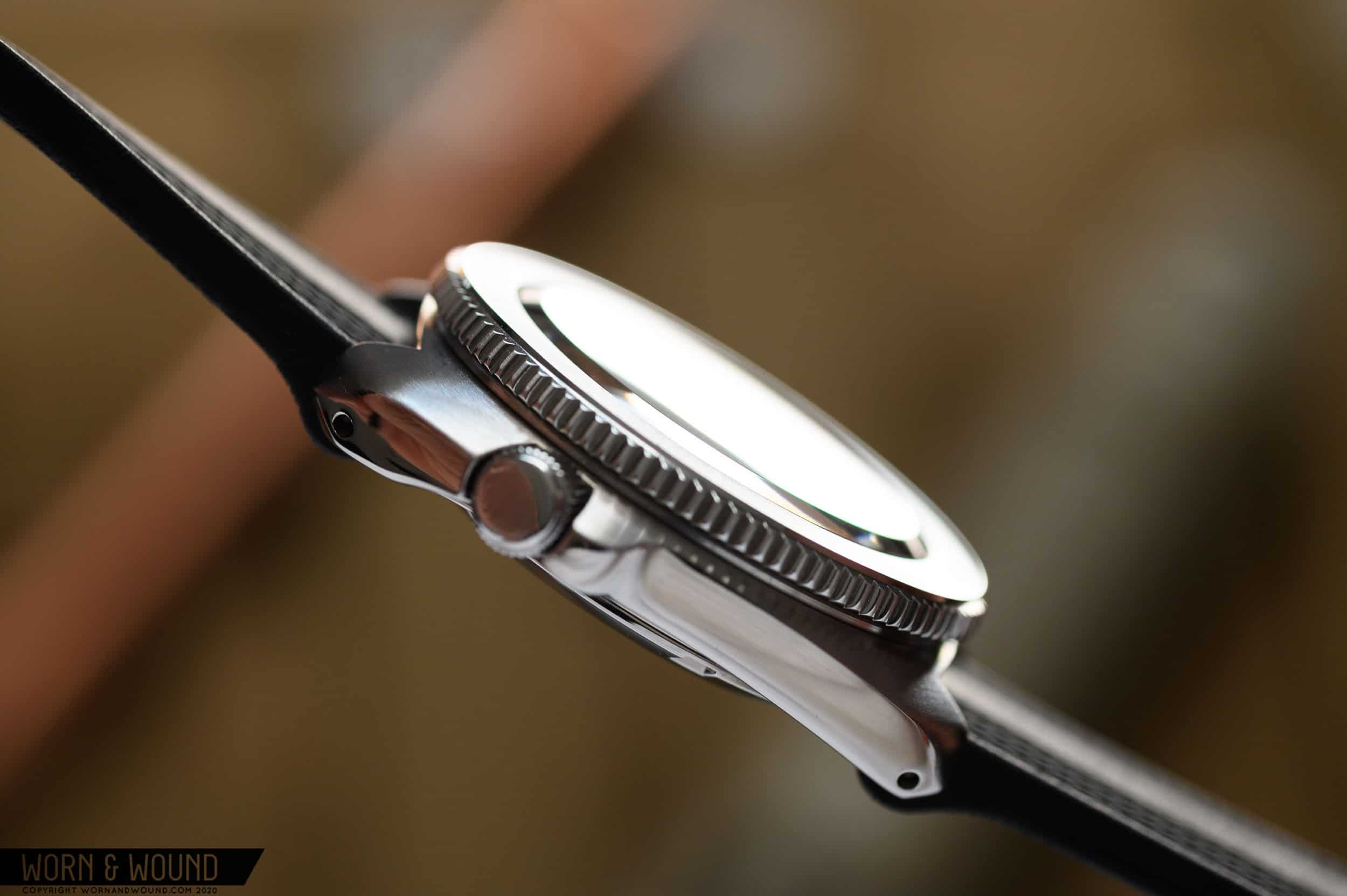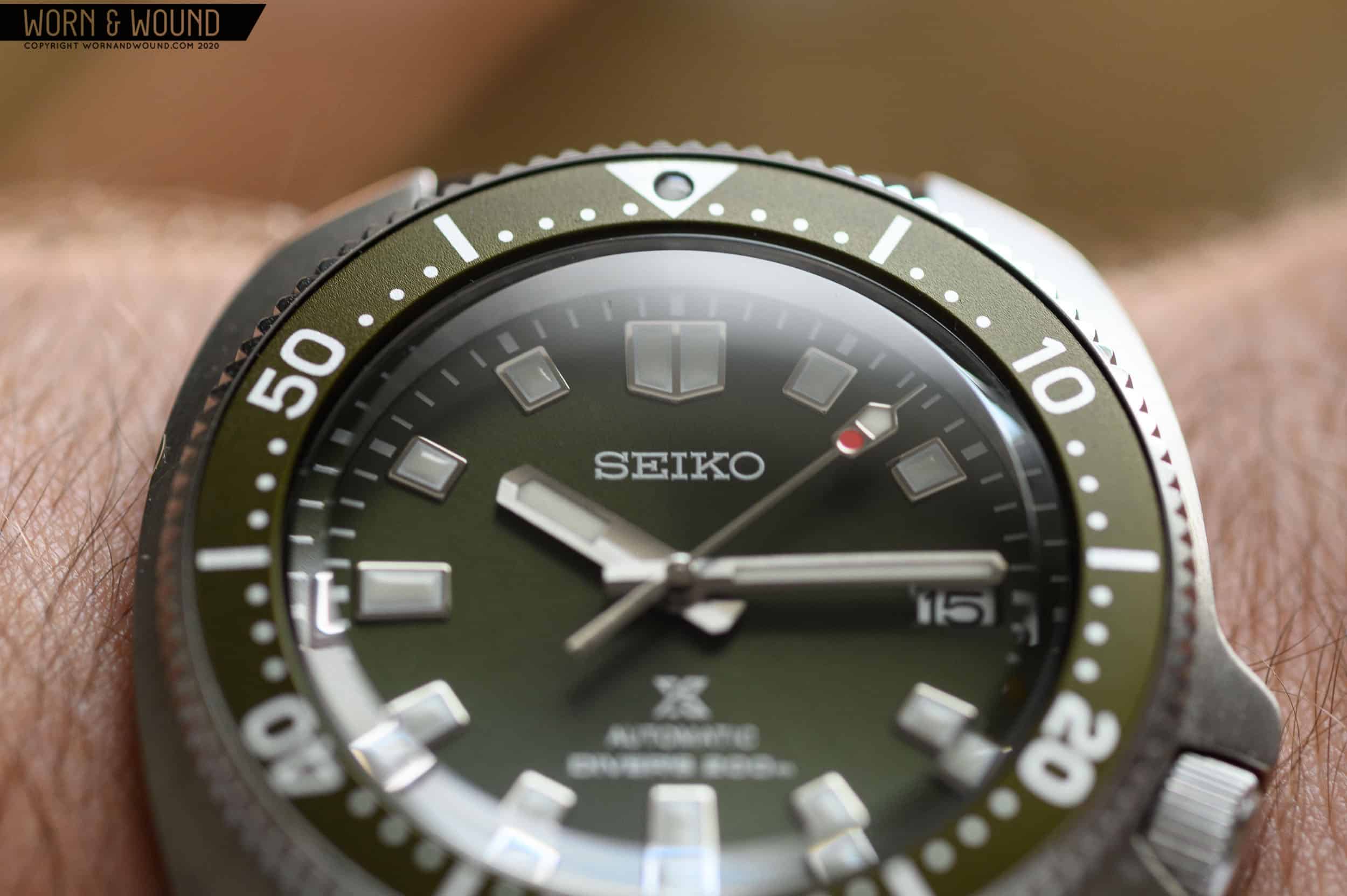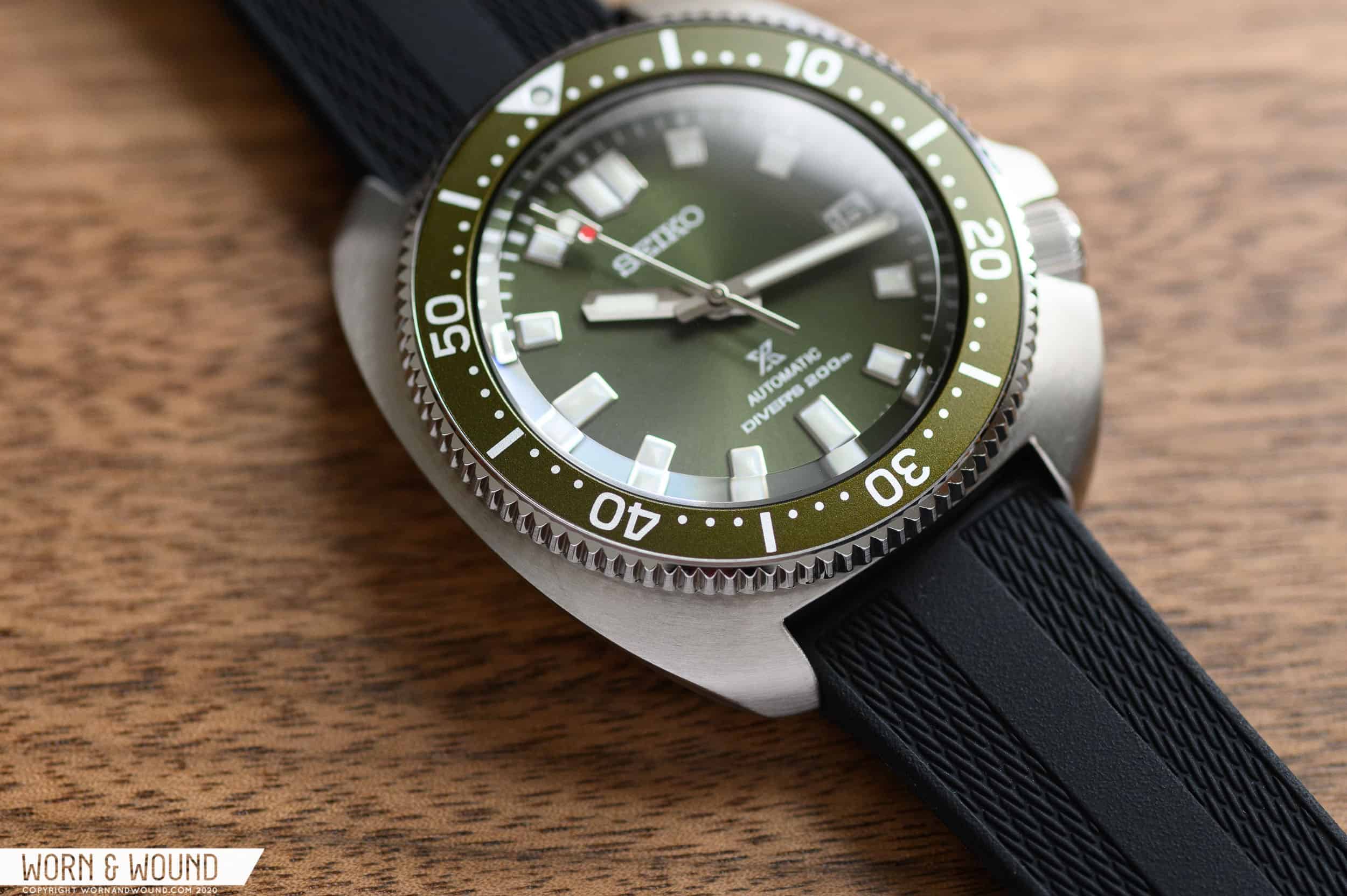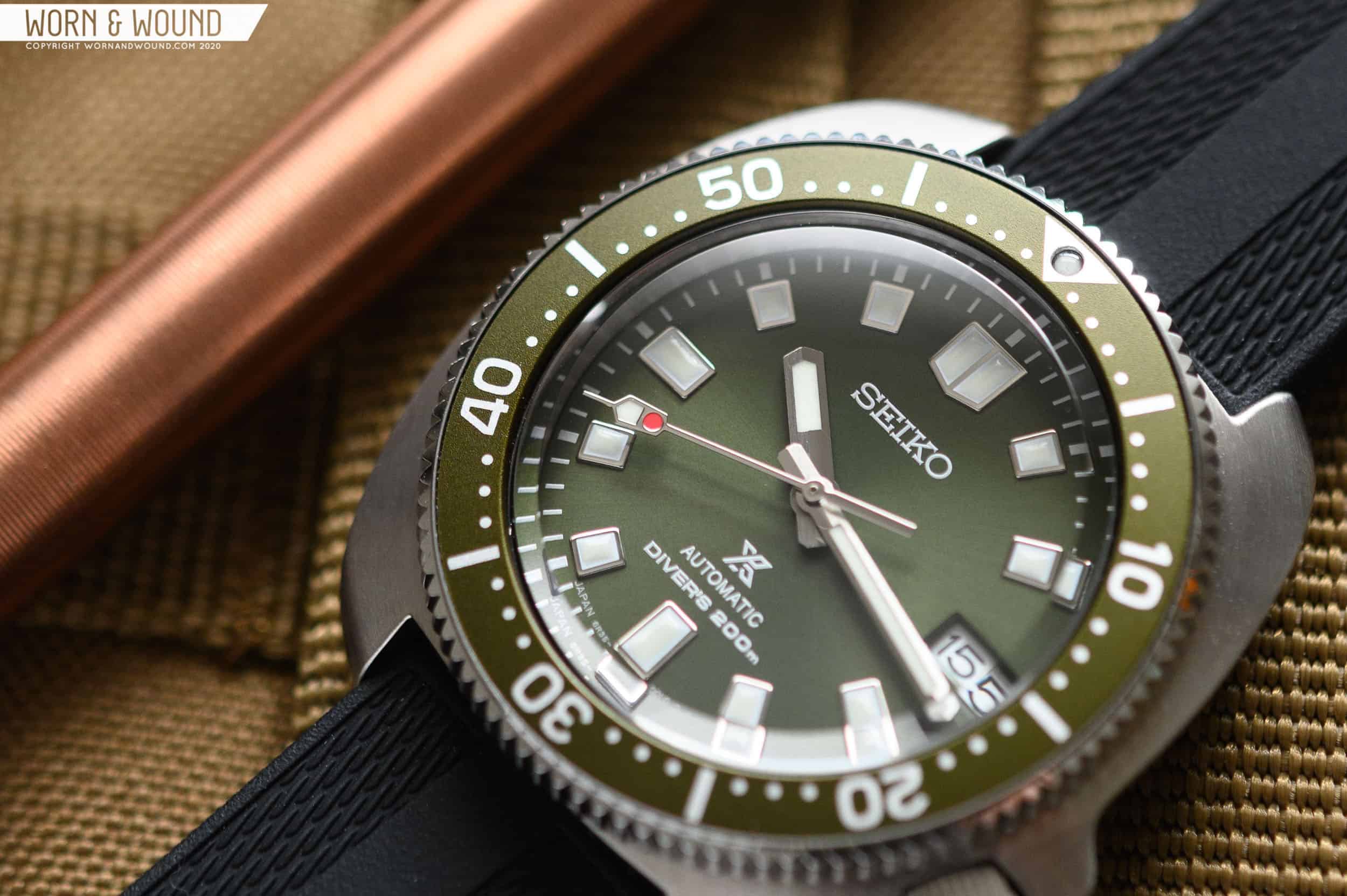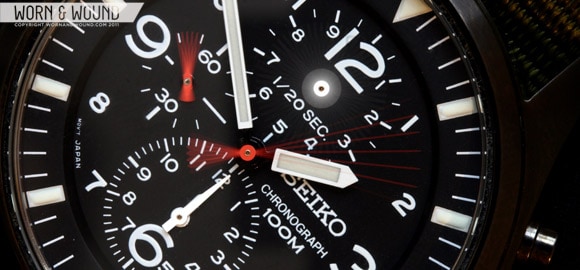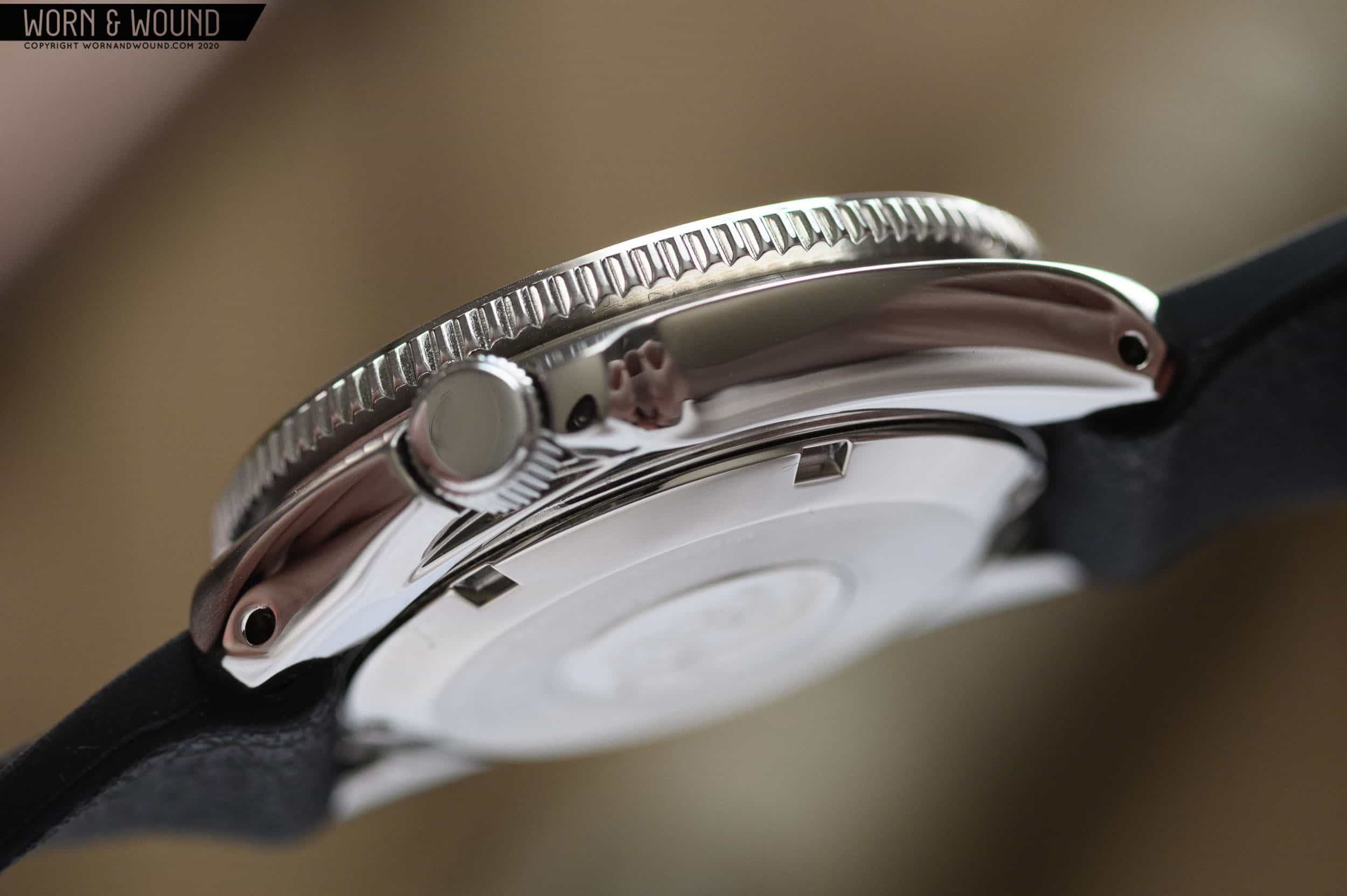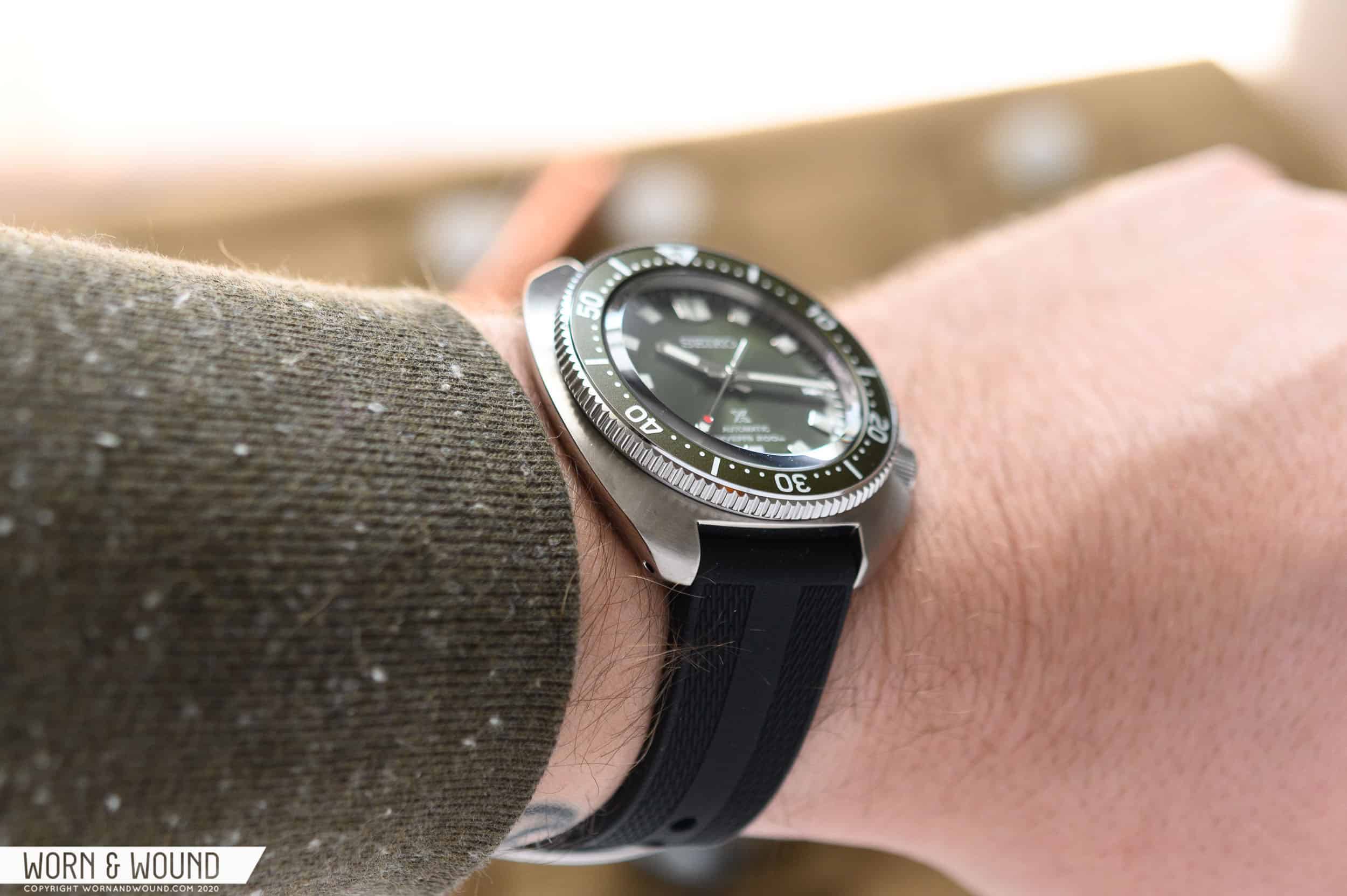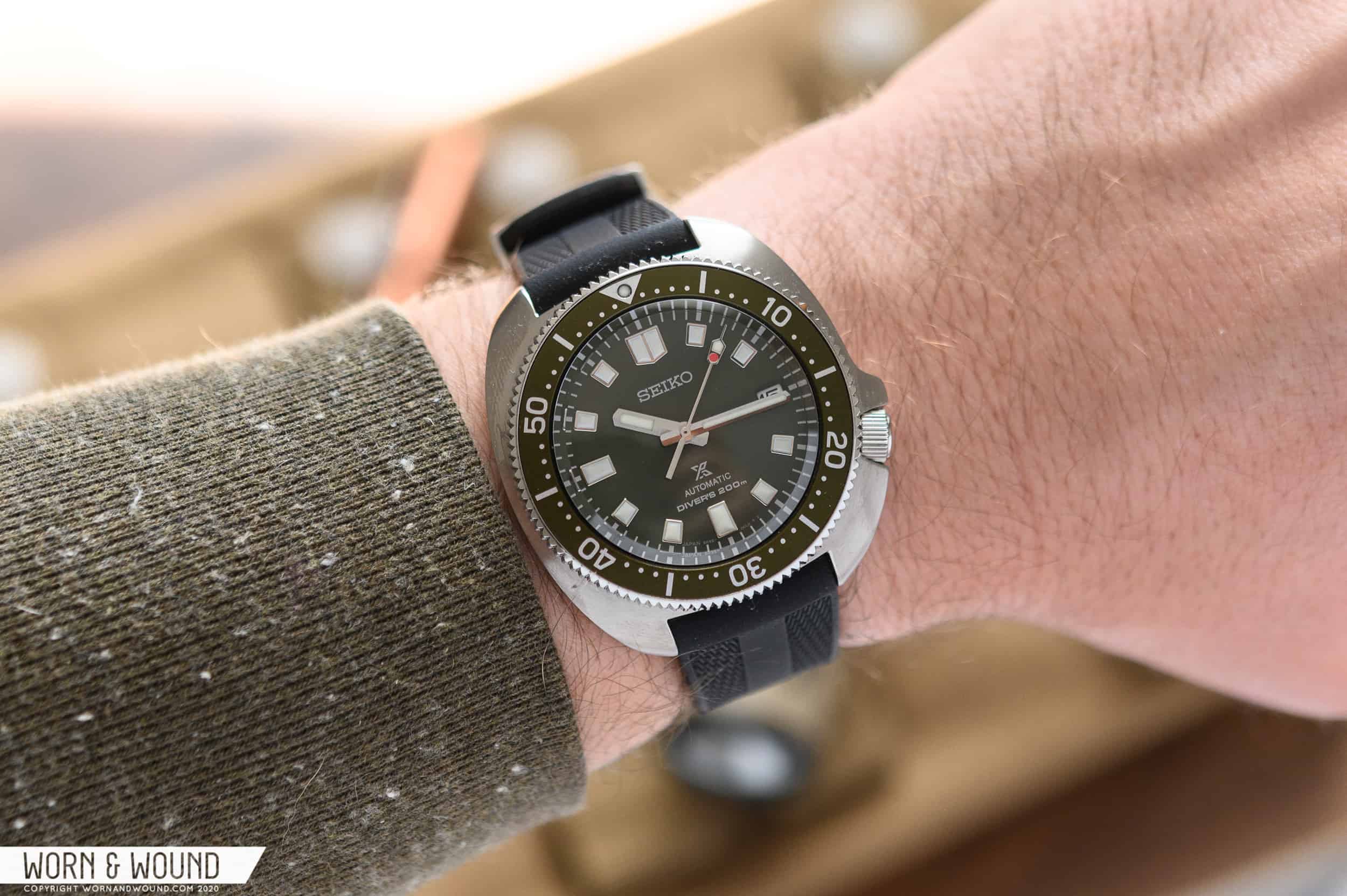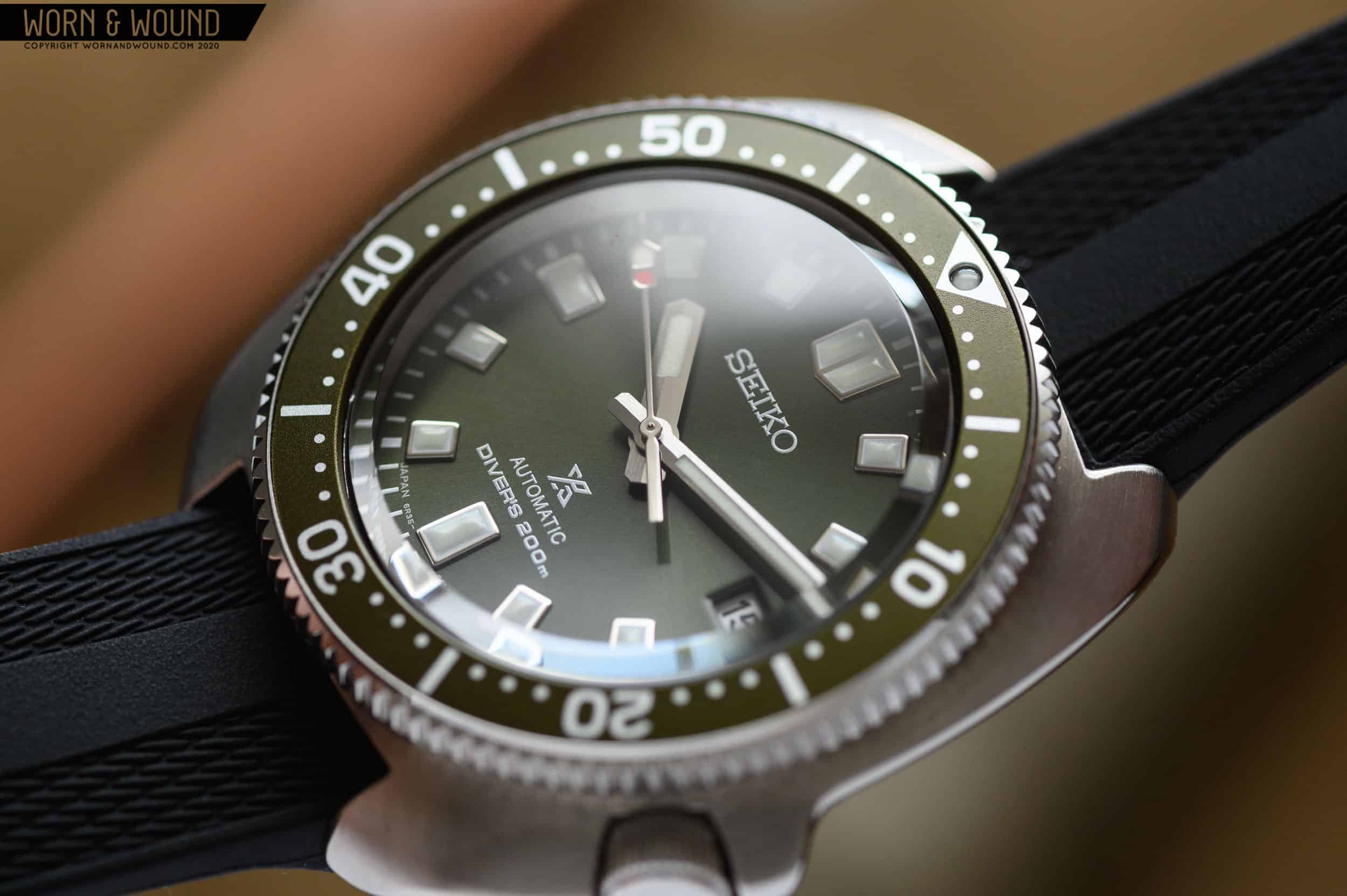Dial & Hands
![]()
The execution of the dial and hands is exceptional on the Willard. While not identical, they represent a faithful enough recreation of the original dial on the 6105-8110, down to the very cool stop light seconds hand. Let’s start first with the dial itself. While I’m sure the black dialed version of the watch is even more faithful to the original, the sunburst green version that Seiko came up with is simply stunning. A sunburst pattern in the base surface of the dial plays with the light, depending on the angle at which you’re viewing the watch. It varies from a shiny bright green, to a deeper shade of army. At some angles, the sunburst effect is less pronounced. No matter how you look at it, the base dial is a treat to look at. There’s no formal rehaut on the dial, which is made up for with a printed chapter ring. Moving inwards, you’ll find a set of applied polished indices from one through 12. At 12, there’s a double wide index that terminates at a point on the bottom. It’s a bold way to denote 12 o’clock and does a great job of standing out from the pack.
![]()
In lieu of a three o’clock marker, there’s a date window that’s rendered in black text on a white background. It balances out the slightly elongated 9 o’clock index nicely. The date window features a sharp beveled edge, giving it an intentional look. I do take issue with the text on the dial. The Seiko logo at 12 works, but the Prospex “X” logo does feel a bit out of place here given the inspiration. Seiko is no stranger to funky little logos, whether it be the “SQ” for Seiko Quartz, regal “GS” on Grand Seikos, or the suggestively-shaped Oscillating Quartz logo. On the Willard, we’re treated to the newest Prospex “X” logo, and it may be a bit too modern looking for such a vintage-inspired watch. Under the “X”, there’s the words “AUTOMATIC” and “DIVERS 200M” just so you always know that yes, this is an automatic watch, and yes, you can also dive with it. Another niggle I have is the dial on the green example is the ever-so-slightly mismatched color between the bezel insert and dial. The bezel reads a bit more yellow, while the dial is more neutral. It’s not immediately visible in all lighting scenarios, but once you see it, it’s hard to un-see. Was this a purposeful design choice? Hard to say. The shades of green are just different enough to notice, but not different enough to determine if this was intentional. The more I wore the watch, the less this quirk bothered me.
![]()
What I believe is the shining star of the watch is the gorgeous hand set crafted by Seiko. The hour and minute hands are rectangular with a rounded side closest to the mounting post. Each terminates in a slight point at the end. The hour hand is a bit more squat and wide, while the minutes hand reaches out towards the edge of the dial. A plot of lume that mirrors the shape of the hand fills each. There’s a lot to love in the finishing employed by Seiko here. Each is split down the middle — one half gets a brushed treatment, while the other is highly polished. Not only does this finishing technique add some classy visual flair, but it also helps with legibility. The added contrast goes a long way in separating the silver hands from the green dial. True to the original seconds hand, the one used on the SPB153 features a very unique lume/paint plot at the end. This traffic light style plot features a polygonal recess of lume that’s accompanied by a circular red dot of paint. For such a small pop of red, it really goes a long way. I love how it looks with the green of the dial and bezel. Execution of the dial and hands are well above Seiko’s entry level divers. There’s some higher end techniques being used here, and seeing the watch in the metal cements the fact that this isn’t your standard $300ish Seiko we’re talking about.
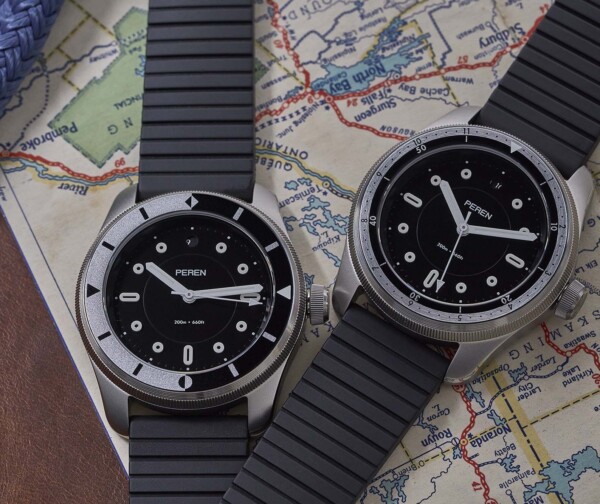

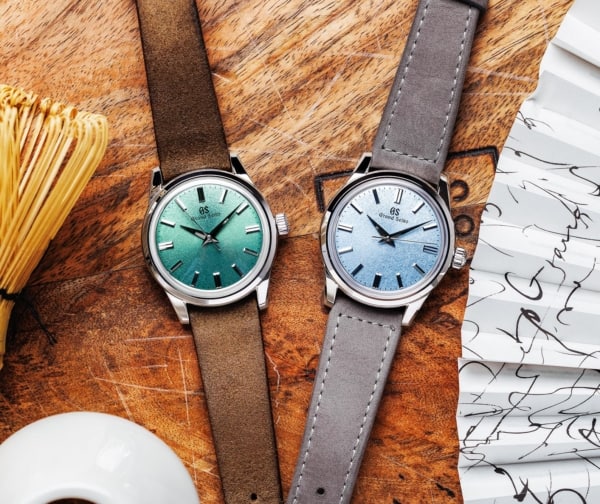
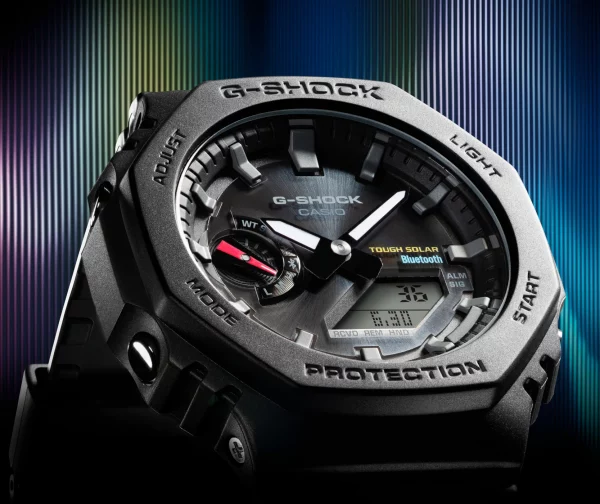

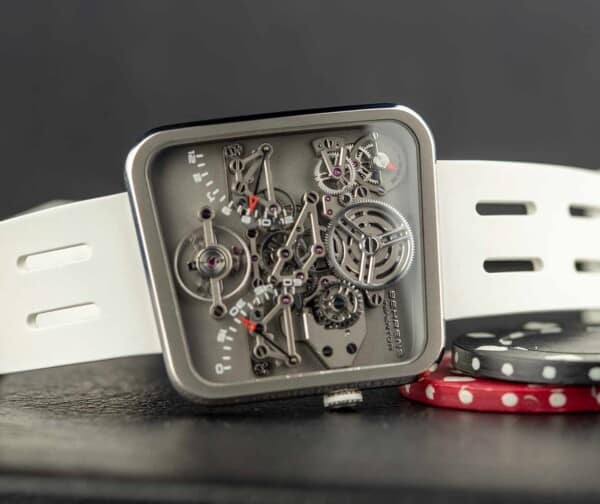
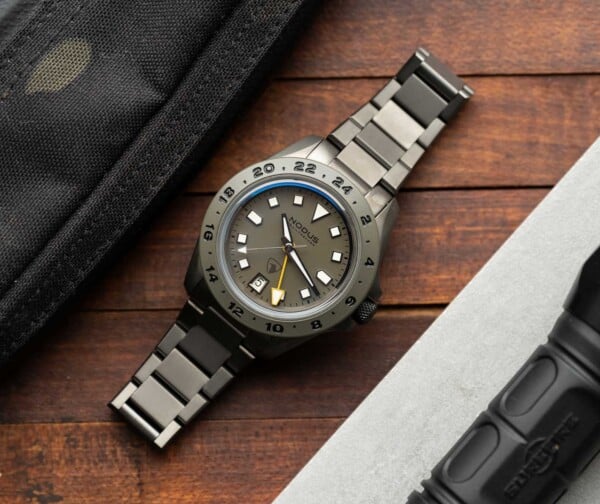


 Featured Videos
Featured Videos




